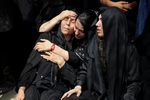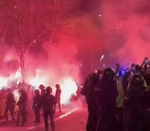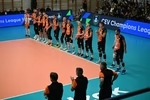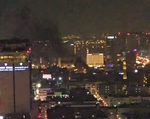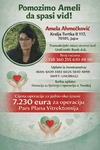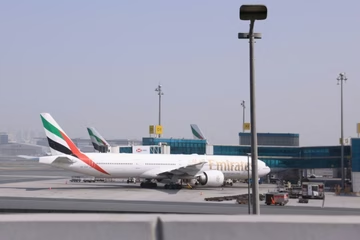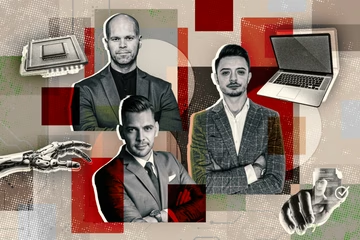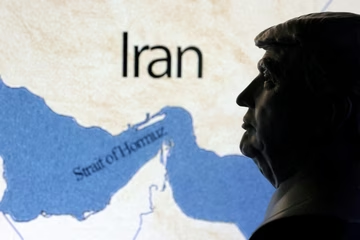
To award Peter Handke –a literary equivalent of a bully – the Nobel Prize in Literature is to send an unmistakable message that Europe was right to know and not know at the same time, and to deny the genocidal nature of the war against Bosnian people.
There is a small, two-story building across from where I work in Srebrenica. I remember its balcony in July 1995 as crammed with men just separated from their families, stripped of their passports, ID cards, and any and all documents, awaiting to be transported to one of the collection points from where the Serb troops took them to execution sites across north-eastern Bosnia. There is a Serb family living there today. Driving by it, I see clothes hanging on the clothesline over the balcony; at one moment I thought I saw children’s toys. Rarely, if ever, has a genocide been as normalized as the genocide against the Bosniaks.
Slobodan Milosevic and his clique of murderers were lucky in one respect: Europe did not perceive them as a danger to itself even as the troops under their direction or direct orders perpetrated the unspeakable in Bosnia and Herzegovina. In fact, Europe – to be precise, the European political class – was and continues to be in some form of denial of what happened in Bosnia and Herzegovina between 1992 and 1995. From Francois Mitterrand’s “Bosnia does not belong” and British officials who spoke of “the painful but realistic restoration of Christian Europe”, to engaging in negotiations with Ratko Mladic personally while the Srebrenica genocidal operation was still ongoing in July 1995, the generation of European politicians who bragged about uniting Europe following the fall of the Berlin Wall, assumed the position of knowing, and not knowing at the same time, about the genocide unfolding in Bosnia and Herzegovina against its Muslim population.
Genocide, to the likes of David Owen and Thorvald Stoltenberg, at one time UN mediators, was no more than a bargaining tool to be used in an effort to coerce the beleaguered Bosnian president Alija Izetbegovic to capitulate and accept the division of his country and the long-term genocide of the Bosniaks. International mediators, whether representing the UN or the European Community at the time, continued, throughout the war, to engage in rationalizations, justifications and overt sympathy with the “professional military” sniping children, for example, in besieged Sarajevo.
A good part of the media and academic establishment was careful to toe the line. The brave journalists, such as Peter Maass, Ed Vulliamy, David Rohde and others went against the grain in reporting what they saw and standing by it. Over the years, however, in the process that Stanley Cohen in his classic “States of Denial” calls “re-allocation”, genocide was first named "ethnic cleansing"; it was now “population exchange”, not “forceful deportation”; it was “detention”, and not “concentration camps”; that is how Bosnia moved from one into another, more "sanitary" class of events. We have been told so many times over the past almost thirty years that our experience is not relevant; and certainly not relevant in the way we believe it is. An entire generation after the experience of being burnt alive, so many of the survivors still remain deeply apologetic for having been killed en masse, as a result of it.
Therefore, for Peter Handke, a genocide denier and open admirer of Milosevic, to receive the Nobel Prize in Literature was not necessarily a deviation from the European position on Bosnian genocide at all. How is what Handke writes about the Bosniaks – “if the Serbo-Croatian-speaking Muslim descendants of Serbs in Bosnia are in fact a people”, he argues in his award-winning literary opus – different from Mitterrand’s claim that “Bosnia does not belong to Europe”? The assertion by the Swedish Royal Academy in a series of letters – that are condescending, to say the least - to survivors of Serbia’s campaigns in Bosnia and Herzegovina and Kosovo, that “there must be space for different reasonable interpretations” of whether, among other things, the Bosniaks “are in fact a people”, follows in the same vein.
Not knowing and knowing at the same time meant in the 1990s getting on with the “European dream” while 12-year old girls in Bosnia and Herzegovina were held in rape camps. To award Peter Handke – a literary equivalent of a bully – the Nobel Prize in Literature is to send an unmistakable message that Europe was right to know and not know at the same time, and to deny, in one form or another, the genocidal nature of the war against Bosnia and Herzegovina and its people. The Bosnian genocide -- to borrow from the Swedish Royal Academy -- remained “at the periphery… of human experience”.
I do not intend to prove to anyone that I am, that we are, human. Sixteen years ago, I sat in the courtroom in The Hague and watched Elie Wiesel deliver a damning testimony during the sentencing hearing of Biljana Plavsic, a former University of Sarajevo professor who pleaded guilty to crimes against humanity. I knew then that I do not get to decide who I am. That decision was always in the hands of the people holding the gun. Or the pen, as the case may be with this year's laureate of the Nobel Prize in Literature.
The writer is the Director of the Srebrenica Memorial Center. A part-time lecturer at the International Relations Department of the International University of Sarajevo (IUS), Dr. Suljagic is also the author of two books: Ethnic Cleansing: Politics, Policy, Violence - Serb Ethnic Cleansing Campaign in former Yugoslavia and Postcards from the Grave.
Kakvo je tvoje mišljenje o ovome?
Učestvuj u diskusiji ili pročitaj komentare





 Srbija
Srbija
 Hrvatska
Hrvatska
 Slovenija
Slovenija








